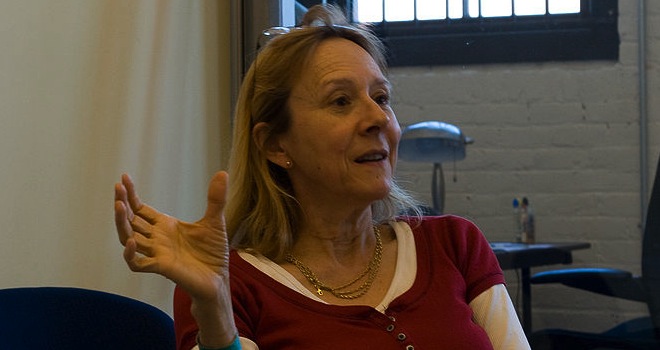When the Internet Corporation for Assigned Names and Numbers (ICANN) announced in June it was opening the door to “.anything” domains, the organization’s president, Rod Beckstrom, said he hoped the decision would allow “the domain name system to better serve all of mankind.”
But now the founding chairwoman of ICANN, who is no longer with the organization, has come out swinging against the proposal in a scathing new column.
Esther Dyson, a Swiss tech journalist and entrepreneur who founded ICANN in 1998 as a non-profit, argues in a column posted Thursday on Project Syndicate that the new extension of top-level domains is a “waste of resources” and accuses the organization’s leaders of having a naked conflict-of-interest in wanting to control the proliferation of new domains for their own profit.
She uses an agricultural analogy to make her case, asking readers to picture the current generic-top level domains, those that end in the familiar “.com,” “.org,” “.edu,” “.gov” etc. as plots of land:
Imagine you own a patch of land and have made it valuable through careful farming practices – good seeds, irrigation, fertilizers, and bees to pollinate the crops. But now someone comes along and says, “We will divide your land into smaller parcels and charge you to protect each of them.”
Dyson points out that the application fee charged by ICANN for registering the new domain spaces costs $185,000 dollars, making it difficult to see the move as anything other than a naked cash grab. Still, she notes that “when ICANN started more than ten years ago, we were accused of commercializing the Internet,” and says the organization under her tenure “failed to deliver” on the promise of providing an orderly and competitive market.
While Dyson might be the most prominent voice to come out against the plan, she’s hardly the first. In fact, since the decision was announced on June 19, many in tech, government and business have blasted it, in varying terms, as “a mess,” “terrible for brand owners,” and even predicting that it will result in “massively increased cybersquatting, spammers, and phishing.
The move does have its advocates as well, though, like Ad Age’s Alexa Read, who argued that it would open new opportunities for brands to make money and spread influence by renting out or selling the new generic-top level domain space out.
ICANN itself has vehemently defended its decision, arguing that it was only made after “six years of inclusive policy development and implementation planning.” ICANN’s board voted 13 to 1 to approve the decision, with two absentions.
But to Dyson’s point, ICANN’s defense is undermined somewhat, at least from a PR perspective, by the fact that two members, including one who lead the vote in favor of the proposal, have since left the organization to join with companies that seek to profit by buying and selling the new generic top level domains.
In fact, ICANN president Rod Beckstrom, who had so enthusiastically cheered the expansion of the generic-top level domains, abruptly announced on August 17 that he, too, would be leaving the company after his contract ends in July 2012, offering no explanation and no insight into his next move.
We’ve reached out to ICANN for a response to Dyson’s column and will update when we hear back.









